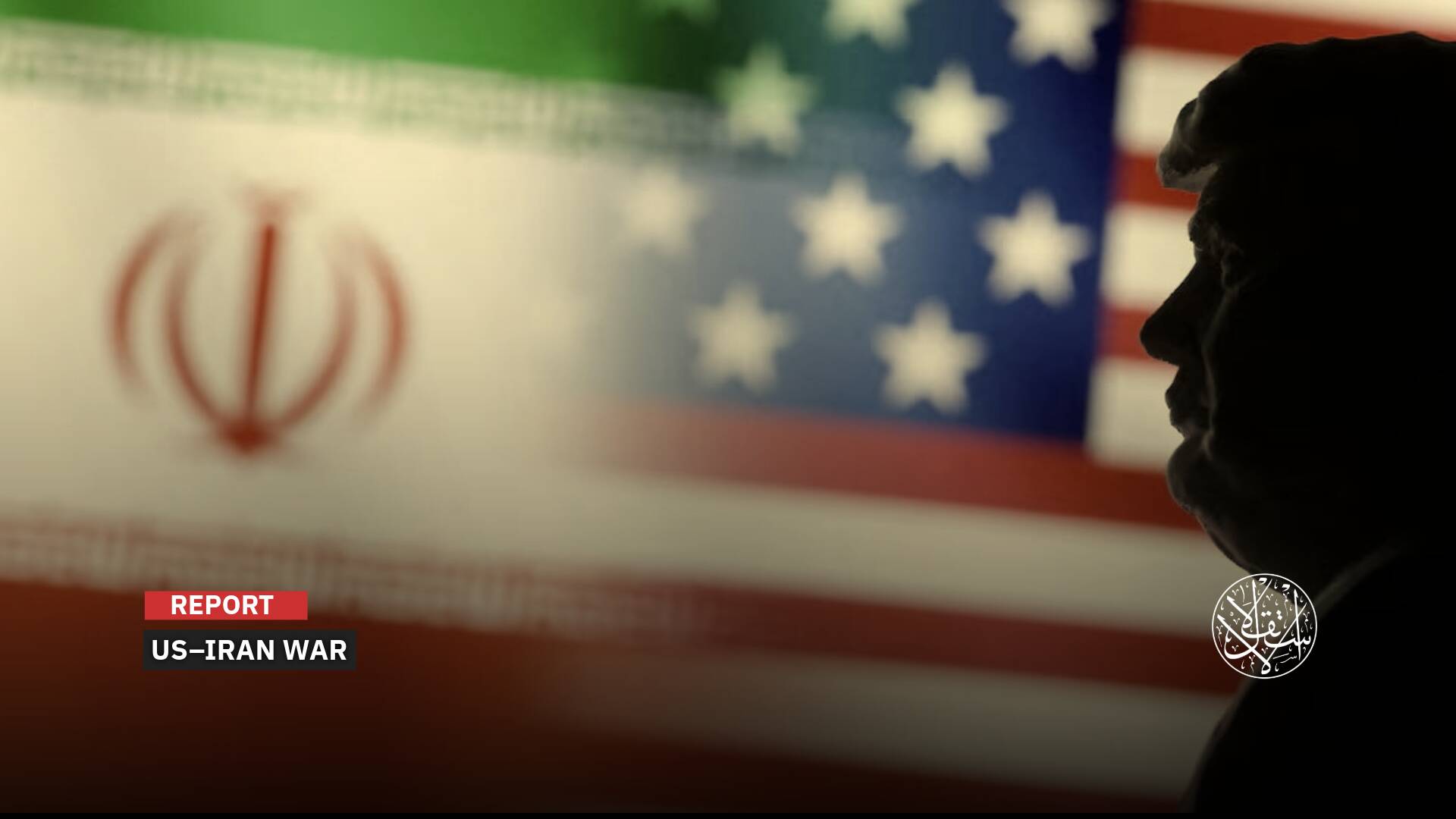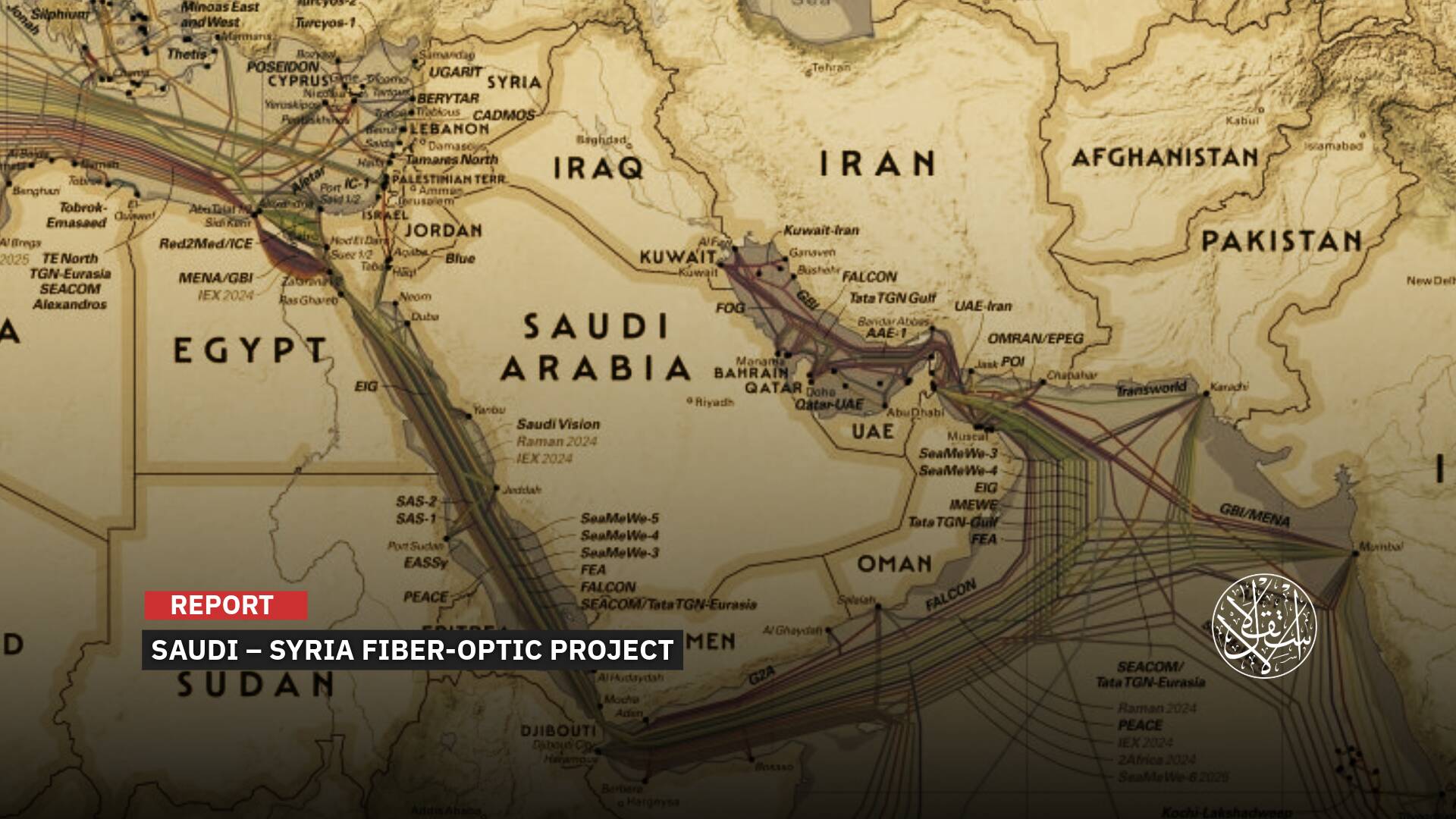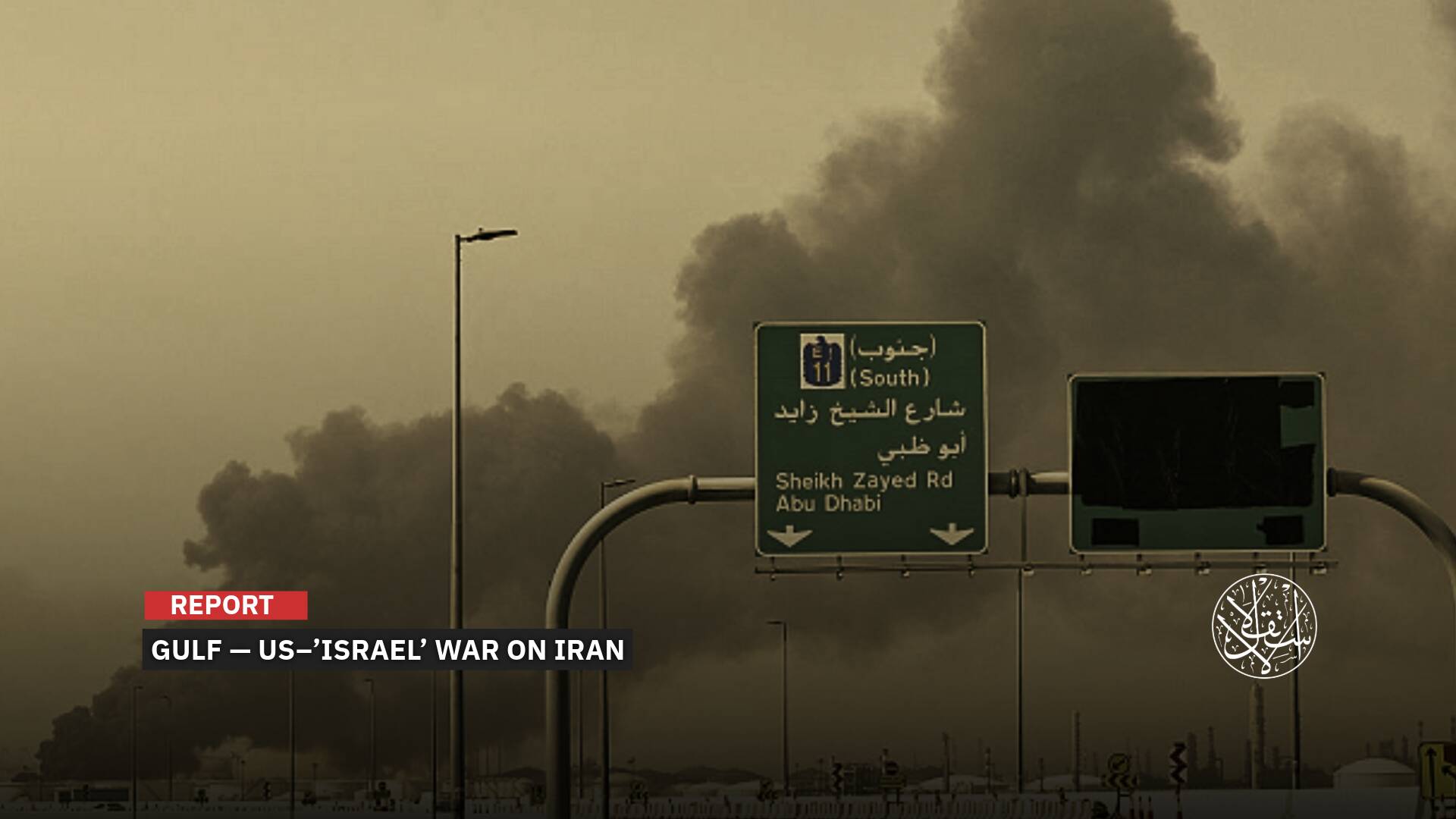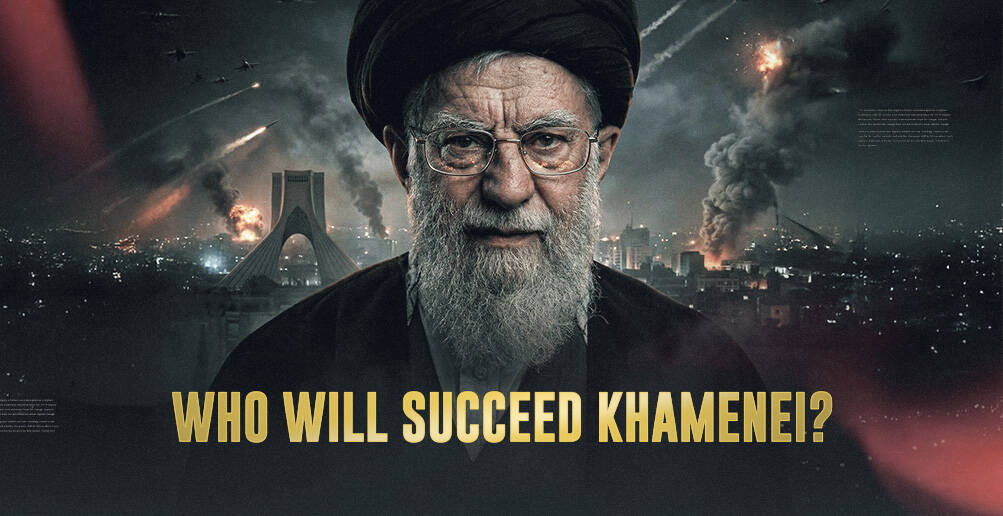Seven Emirati Companies on U.S. Sanctions List: What Is Sudan's Connection?

Tracking the activities of the Emirati companies and their operators revealed just how deeply they're tied to Sudan's bloody war.
In a fresh scandal, Washington has added seven companies headquartered in the United Arab Emirates to its sanctions program targeting entities involved in the war in Sudan.
Abu Dhabi used these firms as front companies to conceal financial transactions and procure military equipment for the rebel Rapid Support Forces (RSF), according to a statement from the U.S. Department of the Treasury read on April 4, 2025.
The move follows recent U.S. sanctions against RSF leaders accused of human rights abuses, including the group’s commander Mohamed Hamdan Dagalo (Hemedti), and his brothers.
The UAE was quick to wash its hands of the seven firms, with the Ministry of Justice insisting they held no valid commercial licenses in the country.
However, an investigation into the operations and leadership of these firms revealed their deep entanglement in Sudan’s bloody conflict, which erupted in mid-April 2023.
Notably, this isn’t the first time the UAE has come under scrutiny for its role in Sudan. In the past, it used specific companies like Black Shield, which was implicated in recruiting Sudanese youth and sending them into the chaos of Libya’s civil war.
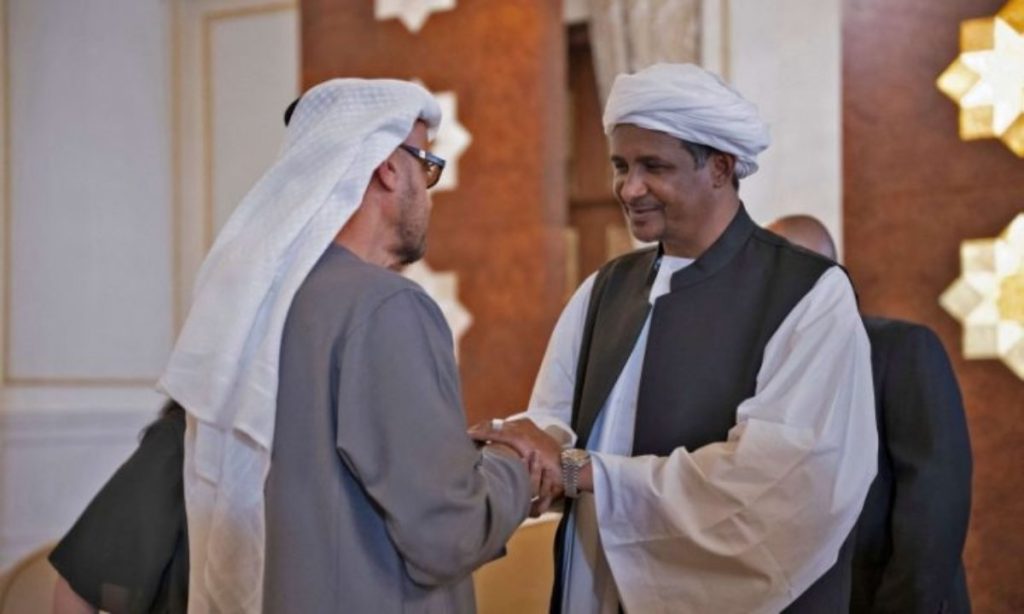
The Seven Companies
Topping the U.S. sanctions list is Capital Tap Holding, founded on April 12, 2021. The company manages some 50 businesses across ten countries—and it’s all run by one man: Sudanese national Abu Dharr Abdul Nabi Habiballa Ahmmed (Abu Dharr).
Abu Dharr also owns Creative Python, the second company listed, which reportedly acted as a financial front for RSF commander Mohamed Hamdan Dagalo, known as Hemedti. The company’s operations were co-managed by Algoney Dagalo, Hemedti’s brother, who has been under U.S. sanctions since October 8, 2024.
The third firm, al-Zumoroud and al-Yaqoot Gold & Jewellers, is also led by Abu Dharr. It's accused of buying Sudanese gold and shipping it to Dubai on behalf of the RSF. Ironically, Algoney had access to the company’s bank accounts, which held millions of dollars.
Horizon Advanced Solutions General Trading is the fourth company on the list. It allegedly imported shipments from GSK Advanced Business Co Ltd, an information technology and security company managed by Algoney. That company had already been sanctioned by the U.S. Treasury on September 28, 2023, for its role in Sudan’s human rights violations.
Fifth is al-Jil Al Qadem General Trading L.L.C, jointly managed by Abu Dharr and Abdul Rahim Dagalo, another of Hemedti’s brothers.
The sixth, Capital Tap Management Consultancies L.L.C, is a subsidiary of Capital Tap Holding. Also managed by Abu Dharr, it’s part of a broader network used for trade, currency exchange, and import-export operations tied to the RSF.
Rounding out the list is Capital Tap General Trading L.L.C., again under Abu Dharr’s control, and described as a key node in a cross-border commercial web used to broker deals between Sudanese and regional firms in support of the RSF.
The Financial Frontman
As the face behind this web of companies, Abu Dharr Abdul Nabi Habiballa has become known as the RSF’s financial mastermind in the UAE. Long affiliated with the paramilitary group, Abu Dharr previously worked in its financial affairs under both the Bashir regime and the transitional government.
Sudanese media reports suggest he’s related to Hemedti and belongs to the same tribe, Rizeigat. Yet his closest link appears to be with Abdel Rahim Dagalo, Hemedti’s brother and his former business partner in al-Jil Al Qadem General Trading L.L.C.
Abu Dharr has been at the helm of several firms sanctioned for facilitating RSF financial operations, including gold purchases and fund transfers through the UAE. His experience in gold trading gave him access to Abu Dhabi’s corridors of power, particularly with Tahnoun bin Zayed al-Nahyan, the UAE’s national security advisor and brother of President Mohamed bin Zayed.
Through his role as a financial go-between for the UAE and the RSF, Abu Dharr helped sustain a shadow economy supporting the Sudanese conflict—ultimately landing him and his companies on the U.S. sanctions list.
On April 4, 2025, Sudanese journalist Ameer Saleh wrote for Ultra Sudan about the sanctions and their implications. He quoted the Department of the Treasury’s Office of Foreign Assets Control (OFAC), which stated that the sanctions target Emirati firms linked to the RSF.
A previous Treasury statement from January 7, 2025, had warned that the RSF’s ability to acquire weapons and funding was fueling the war in Sudan. That round of sanctions also targeted a UAE-based bank and two other companies accused of financing both warring parties.
Saleh highlighted Capital Tap Holding as a prime example—accused of directly supplying the RSF with both money and weapons.
The identification of the UAE as the home base and enabler of these firms was no coincidence. OFAC published company registration numbers in its sanctions notice, noting all were operating openly from within the Emirates and well-known to local authorities.

Black Shield
The UAE's history with dubious companies exploiting Sudan’s humanitarian crises is deeply troubling, marked by a trail of abuses and human rights violations.
On December 25, 2019, The Guardian published an investigative report linking the UAE to the financing and transfer of mercenary fighters to Libya, where they joined militias loyal to renegade general Khalifa Haftar, a key ally of Abu Dhabi.
Just a month later, on January 28, 2020, hundreds of Sudanese citizens protested outside the Ministry of Foreign Affairs in Khartoum. The demonstrations erupted after revelations that Sudanese youth had been deceived into joining military campaigns in Yemen and Libya, rather than taking up promised security jobs. The contracts had been signed with a UAE-based company known as Black Shield.
Protesters chanted against then-Crown Prince Mohammed bin Zayed, waving banners that read: “Our sons are not for sale,” “We rose up for our dignity,” and “Our children are not mercenaries.”
Founded in 2001, Black Shield brands itself as a provider of specialized security, operational, and counterterrorism training services.
But on January 30, 2020, Al-Jazeera released exclusive footage showing Sudanese youth who had been misled by Black Shield and taken to Libya after undergoing military training at UAE camps. The network also published private photographs confirming their presence in eastern Libya. The group was only returned to Abu Dhabi following immense public pressure.
The Black Shield scandal laid bare the reality that many of these firms are mere fronts for state-backed military expansions, enabling the UAE to extend its influence in Sudan, Libya, Yemen, and other regions through a paid mercenary apparatus.
In August 2019, Middle East Eye revealed that nearly 1,000 members of Sudan’s Rapid Support Forces (RSF) had arrived in eastern Libya that same month to fight alongside Haftar. Hemedti had also reportedly enlisted around 450 fighters from Darfur’s Arab tribes on behalf of the Emirati military.
A similar scandal emerged in 2017 when The Times of London uncovered testimonies from families in Sudan, Chad, and Niger. Their sons had been lured with promises of high-paying security jobs in the UAE, only to find themselves conscripted into the Emirati military and deployed to frontlines in Yemen.
These incidents underscore a recurring pattern: the exploitation of vulnerable communities under the guise of economic opportunity—only to be used as cannon fodder in foreign wars.
Sources
- UAE probing RSF-linked firms after US sanctions
- Sudan and Jordan supplying Libya's Haftar with weapons and troops, says UN
- Treasury Sanctions Sudanese Paramilitary Leader, Weapons Supplier, and Related Companies
- Libya’s New Power Brokers?
- UAE: US-sanctioned companies do not have licenses in the country [Arabic]
- 7 UAE Firms Sanctioned Over Sudan War Ties [Arabic]



